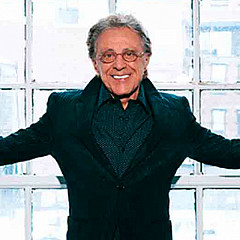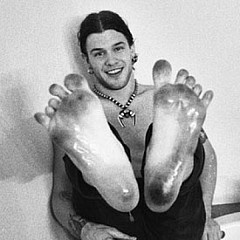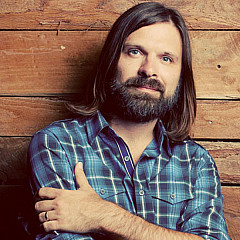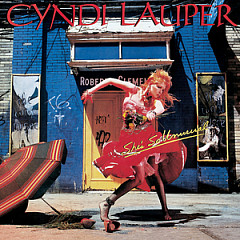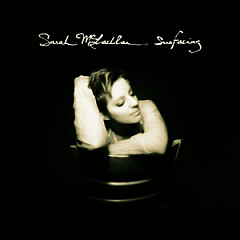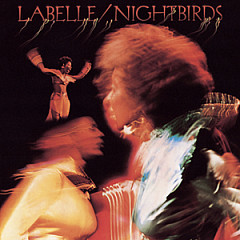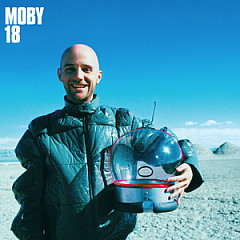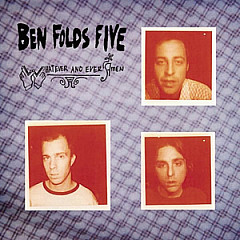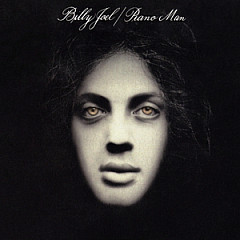 Tony Hiller has had an absurdly prolific and successful career as a songwriter, producer, manager and publisher. He created The Brotherhood of Man, who had three #1 hits in the UK, including "Save Your Kisses For Me," which won the Eurovision Song Contest and was the biggest-selling single of 1976 in the UK.
Tony Hiller has had an absurdly prolific and successful career as a songwriter, producer, manager and publisher. He created The Brotherhood of Man, who had three #1 hits in the UK, including "Save Your Kisses For Me," which won the Eurovision Song Contest and was the biggest-selling single of 1976 in the UK.A look at his credits makes you wonder if he cloned himself somewhere along the way: over 1,400 published songs recorded by hundreds of artists including Elton John, Sonny & Cher, and The Hollies. He has six Ivor Novello awards, which are given in England each year for songwriting achievement. His most enduring song, at least in America, is "United We Stand," an inspiring song of harmony and peace that has been used by many artists to send a message of hope after the September 11th attacks.
Tony Hiller: I wrote 'United We Stand' in 1969 with my dear departed friend, Johnny Goodison. Believe it or not, I had two jobs at that time - I was General Professional Manager of an American Music Publishing Company, Mills Music, and I was also a record producer for Decca Records UK. I produced the record at Decca Studios, London. At the recording I had great musicians, wonderful arrangement, terrific engineer, and the exceptional voices of the Brotherhood of Man which I had founded and put together. They were Roger Greenaway (who went on to become a hit songwriter and just recently inducted into the US Songwriters' Hall of Fame), Tony Burrows (who was unique in that he had three major hits in three different bands in the same period - 'https://www.songfacts.com/facts/edison-lighthouse/love-grows-where-my-rosemary-goes,' 'My Baby Loves Love' and 'United We Stand' - making musical history.
Johnny Goodison was the first member of my band and co-writer of many of the titles I wrote for them. After this, he went on to write and produce many hits, including the Bay City Rollers. Plus two sisters, who were the top session singers of the day and were on numerous hits for major artists at that time, Sue Glover and Sunny Leslie. I also recorded tracks with them and Sunny went on to have a hit with "Doctors Orders." I was so honored and LUCKY to have worked with such a wonderful array of talent. When I played back the recording I had made, there was thunderous applause in the studio. We all knew that there was magic in the air.
The inspiration for the song was definitely in the title, "United We Stand." It was during the time of Flower Power, the Vietnam War, the founding of lots of movements, including gay liberation and civil rights. It was in fact immediately taken up and used as the rallying call for the US Democratic Party presidential campaign. Over the years, "United We Stand" has been recorded by upwards of 150 artists worldwide. So you can see, that something that started out as a pure love song went on to become an important anthem of our times, and helped so many people to heal their pain and suffering after the 9/11 attacks. That made me very proud. In answer to your question, this is the Brotherhood of Man song of which I am most proud.
Songfacts: How did you come up with the tragic love story in "Angelo"?
Hiller: Angelo, very simply, was based on perhaps the greatest love story of all time, Romeo and Juliet. The beautiful young daughter of the richest man in the country and the handsome laborer working on the estate - they died for love.
Songfacts: Where did the name "Figaro" come from, and was there any particular person who inspired the song?
Hiller: My daughter had just come back from vacation in Spain and was full of stories about the young waiters trying to romance the young girls.
Songfacts: What were some of the production techniques you used to craft the sound of the Brotherhood of Man recordings?
Hiller: What I did on the productions which I had never tried before - when it came to the choruses, I double tracked the voices and between each chorus did a little reverb. It was an experiment and it worked well for me.
Hiller: The three year old in "Save Your Kisses for Me" was every three year old in the world who had a dad running off to work, and who kissed them goodbye.
Songfacts: Were you surprised when the group won the Eurovision Song Contest, and what changed after the victory?
Hiller: Regarding Eurovision, this was the second Brotherhood of Man and totally different to the original. I had put this new band together the previous year, and recorded a song "Kiss me Kiss Your Baby." It had been a big hit in Europe and I feel sure it helped us win the final so convincingly. It was in fact the biggest winner ever - we sold five million singles and it was #1 in 27 different countries.
Songfacts: How do you typically write a song?
Hiller: Typically I am habitually noting down titles, and when I have one I think is right, the tune easily follows.
Hiller: The reason why we didn't have any more success in America was because the original band broke up due to the individual careers of the founding members, and there were no further releases, until I put the second band together. The bands were very different in style. The first was a real "soul" band, and the second was well and truly pop.
Songfacts: What is a good indicator that a young songwriter is going to be successful, and how can one develop their songwriting skills?
Hiller: I think after being in the business for so long as a successful songwriter and producer, it really comes down to instinct when spotting future talent.
Songfacts: Was there any point when you became jaded with the music industry?
Hiller: I have never lost the thrill and joy of writing and producing, and never will.
Songfacts: Of the many cover versions of your songs, which are your favorites?
Hiller: Every cover of my songs is the best as far as I'm concerned.
Songfacts: You've worked with many talented writers and musicians. Who is the most memorable person you've worked with, and why?
Hiller: Choosing one most memorable person is impossible for me as I have worked with the greatest co-writers, co-producers, arrangers, engineers, and of course world renowned artists. I have worked with too many "greats" to say who would be the "greatest."
September 30, 2011
Photo from Tony Hiller's Facebook page, courtesy of Hiller
More Songwriter Interviews

